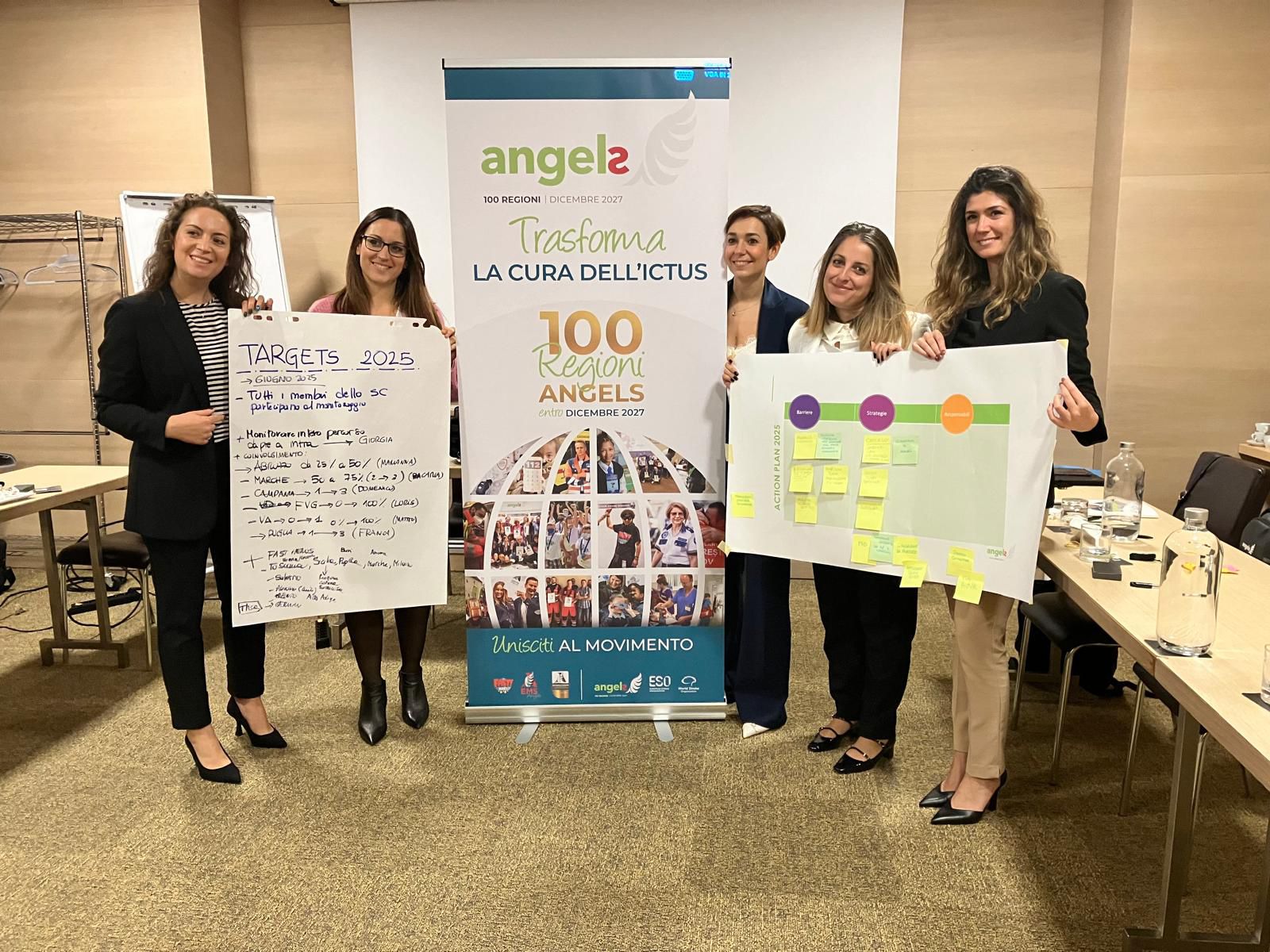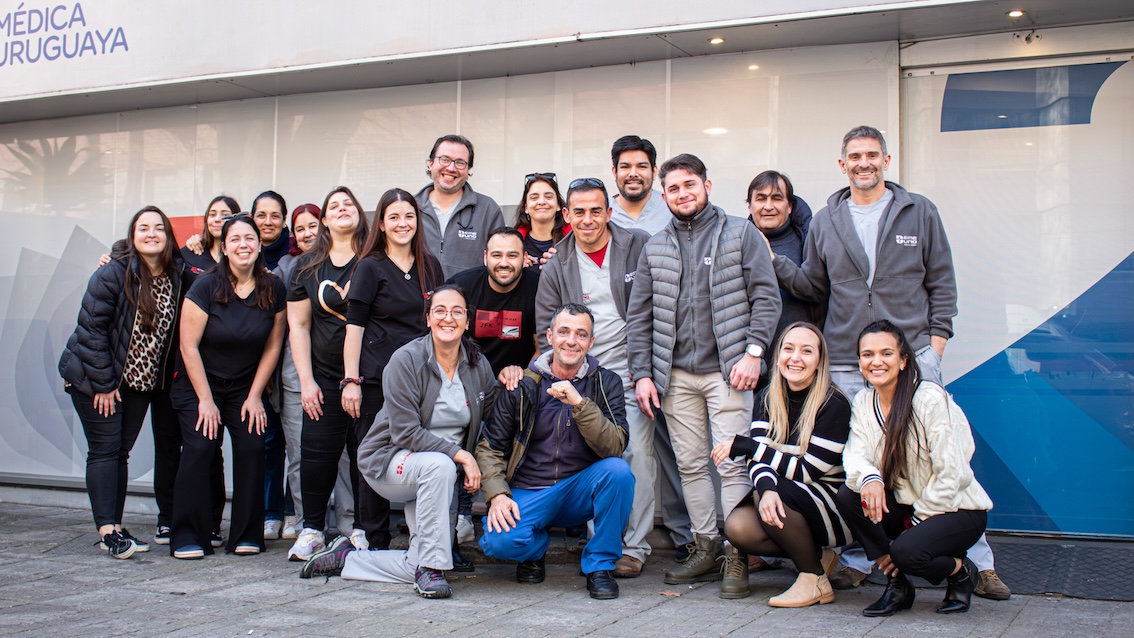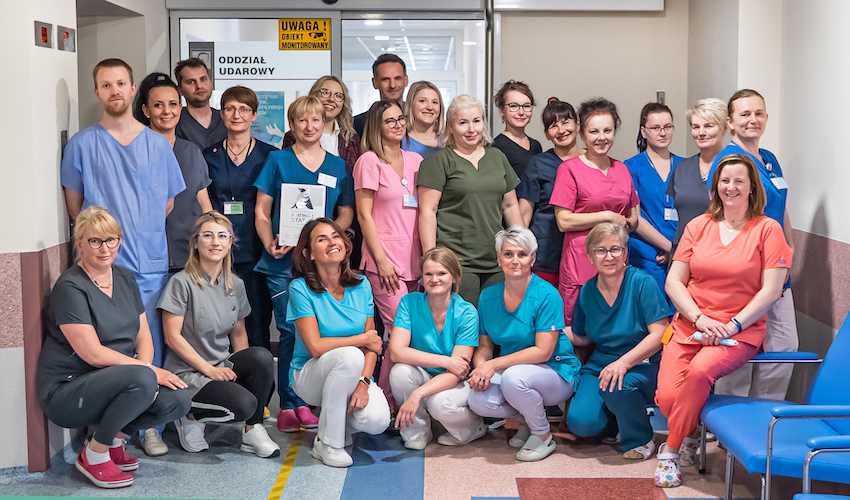
DUA hal yang harus Anda ketahui tentang Wałbrzych, kota yang menjadi latar cerita ini.
Salah satunya adalah menjadi kota pertambangan batu bara pada abad ke-18, dan tidak lagi menjadi kota pertambangan batu bara pada bulan September 1996 ketika truk batu bara terakhir dibawa ke permukaan. Sebuah museum sekarang berdiri di tempat tambang batu bara dulu, tetapi di atas tanah kota pasca-tambang membawa bekas luka. Pengangguran tinggi dan banyak mantan penambang hidup dalam situasi yang bertingkat.
“Karena tambang tersebut ada, dan karena ditutup, masyarakat mengalami sakit,” ucap Dr. Patrycja Marciniak, dokter spesialis stroke muda di Rumah Sakit Perawatan Spesialis Dr. Alfred Sokołowski yang sering mengalami penyakit kronis pada sistem kardiovaskular dan paru, serta sebanyak 50 pasien stroke per bulan.
Untuk menyebarkan kesadaran di antara mereka yang paling mungkin terkena stroke, Dr Marciniak bersama dengan kardiolog Dr. Aleksandra Potocka-Chmielewska secara rutin memberikan ceramah di cabang lokal U3A (organisasi global yang didedikasikan untuk berbagi pengetahuan di antara lansia) dan senang bahwa para aktivis di komune yang lebih kecil di dekatnya sekarang mengikuti jejaknya. Ia juga mendorong sekolah dan TK Wałbrzych untuk menerapkan kampanye FAST Heroes di mana anak-anak belajar mengenali gejala stroke pada kerabat dan pengasuh mereka.
Dia berkata, “Ini adalah inisiatif yang sangat penting dan diperlukan, terutama di komunitas seperti komunitas kami.”
Hal kedua yang perlu diketahui tentang Wałbrzych adalah bahwa layanan ambulans dan rumah sakit tempat Dr Marciniak bekerja adalah lembaga tingkat pertama yang sangat mampu merawat populasinya yang rentan. Dan dalam hal penatalaksanaan stroke, mereka termasuk yang terbaik di Eropa.
Baik rumah sakit maupun layanan ambulans telah mencapai status berlian dalam program penghargaan Angels, dan kedua belah pihak akan memberi tahu Anda bahwa mereka tidak dapat melakukannya tanpa anggota lainnya.
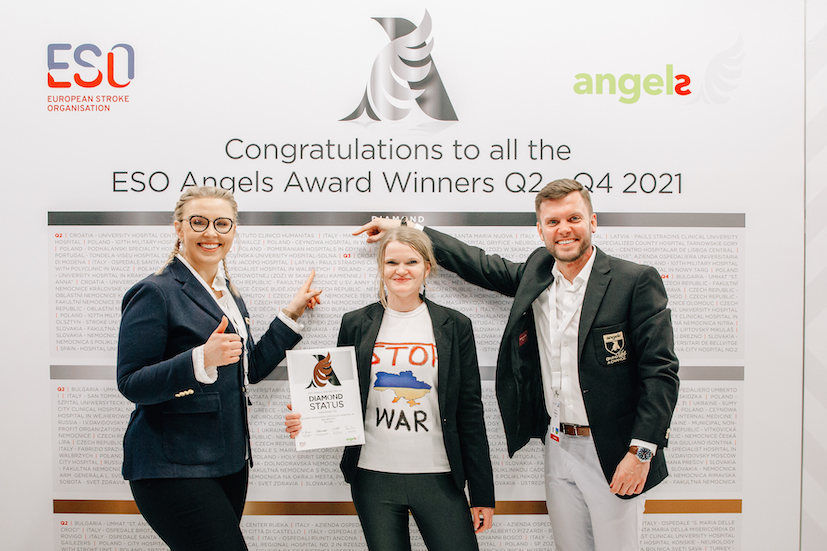
Kisah tentang dua tim yang bekerja sama demi kepentingan pasien stroke dimulai pada tahun 2017 ketika departemen neurologi Rumah Sakit Sokołowski mengundang anggota layanan ambulans ke pertemuan multidisipliner. Di sini, dengan persetujuan direktur EMS, Tn. Ryszard Kułak, kepala ahli neurologi Dr. Katarzyna Krawczyk-Rojek memperkenalkan protokol untuk mengelola stroke.
Personel ambulans segera mulai mengimplementasikan semua item yang ditetapkan dalam protokol. Hal ini termasuk menggunakan skala ROSIER untuk mendeteksi stroke, mencatat riwayat medis pasien dan obat-obatan terutama antikoagulan, menyiapkan dua kateter intravena perifer, memberi tahu terlebih dahulu departemen gawat darurat rumah sakit, dan menghubungi neurolog dengan nomor telepon khusus untuk memberi tahu mereka bahwa pasien yang diduga stroke sedang dalam perjalanan. Semua tindakan ini memiliki satu tujuan – untuk memastikan bahwa pasien mendapatkan pengobatan lebih cepat.
Sementara itu di Rumah Sakit Sokołowski, Dr Krawczyk-Rojek secara sistematis memperkenalkan langkah-langkah baru untuk mencapai tujuan yang sama dengan menghilangkan penundaan di sepanjang jalur stroke.
Ketika konsultan Angels Katarzyna Putyło mengunjungi rumah sakit beberapa tahun kemudian, ia akan menemukan alur efisien yang tidak membuat batu tidak tergoyahkan. Pranotifikasi ambulans berarti ada neurolog yang menunggu di unit gawat darurat saat pasien tiba. Pasien stroke dilacak dengan cepat melalui UGD, dan dipindahkan ke laboratorium CT secepat mungkin. Karena radiologi adalah entitas milik swasta di rumah sakit, belum mungkin untuk mengantarkan pasien langsung ke CT, tetapi praktik memulai trombolisis di ruang CT secara bertahap diperkenalkan.
Untuk memastikan pasien stroke mendapatkan perawatan terbaik selama mereka dirawat di rumah sakit, rumah sakit tersebut memilih untuk berpartisipasi dalam QASC Eropa, sebuah studi implementasi protokol FeSS dalam perawatan pasca-akut. Mereka juga telah terdaftar dalam registri peningkatan kualitas perawatan stroke RES-Q, dan memanfaatkan analisis data untuk memantau kinerja mereka dan mengidentifikasi adanya kesenjangan.
Setiap intervensi memiliki dampak positif pada hasil pasien. Rata-rata waktu door-to-needle turun menjadi antara 15 dan 20 menit, dan angka pengobatan naik di atas 20 persen. Di unit stroke tempat pasien dirawat setelah pengobatan, keterlibatan staf perawat meningkat seiring meningkatnya kesadaran akan dampak mereka terhadap hasil akhir pasien. Penapisan disfagia menyebabkan penurunan drastis jumlah pasien dengan pneumonia aspirasi.
Pada akhir 2019, Rumah Sakit Sokołowski menerima pengakuan internasional atas upaya mereka dalam meningkatkan perawatan stroke, sehingga meraih status platinum dalam ESO Angels Awards. Mereka memenangkan penghargaan berlian pertama pada awal 2020, dan selama tiga tahun ke depan menambah tujuh lagi.
Tapi itu hanya separuh dari cerita.
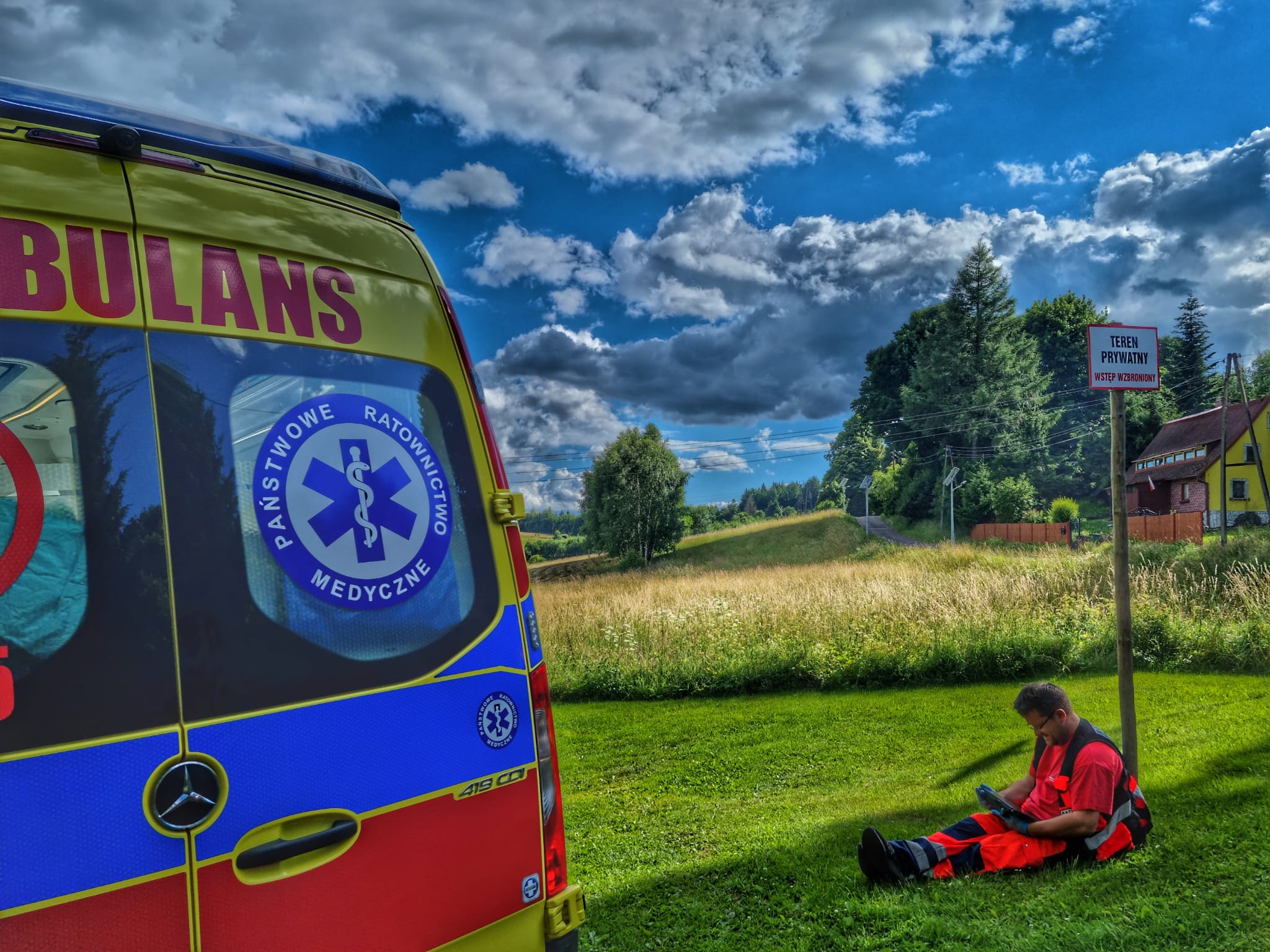
Selama pertemuan pada tahun 2021, telinga Mateusz Pitiło yang paramedis terkelupas saat ia mendengar Drs Patrycja Marciniak dan Dagna Fa Boldmereciszewska berbicara tentang EMS Angels Awards yang memberikan pengakuan atas keunggulan dalam perawatan stroke pra-rumah sakit. Layanan ambulans Wałbrzych terus memenuhi standar perawatan yang ditetapkan oleh Dr Krawczyk-Rojek pada tahun 2017. Dia tahu ini adalah sesuatu yang bisa dimenangkan timnya.
Mateusz mengatakan, “Menelaah kriteria penghargaan, saya menyimpulkan bahwa kami telah berperilaku dengan cara yang sama dan memenuhi banyak standar selama hampir empat tahun. Menerima penghargaan tampaknya hampir formalitas, tetapi juga akan menjadi peluang untuk pengembangan lebih lanjut, motivasi, pembaruan aturan perilaku kita agar menjadi lebih efisien, dan memantau kualitas.”
Pada bulan Oktober tahun berikutnya, Mateusz berdiri di atas panggung di Berlin untuk menerima penghargaan platinum EMS Angels pertama dari layanan ambulans Wałbrzych. Kemudian mereka meningkatkan permainan mereka dan tiga bulan kemudian memenangkan penghargaan berlian.
“Mustahil untuk tidak memperhatikan korelasi antara EMS dan rumah sakit yang menerima penghargaan berlian,” kata Mateusz. Hubungan sinergis tampaknya sedang bekerja, di mana masing-masing meningkatkan efektivitas satu sama lain sehingga bersama-sama mereka menciptakan kontribusi yang lebih besar daripada yang mereka lakukan secara independen. Hal ini, ujar Mateusz, terjadi sebagai hasil dari “pemantauan kualitas berkelanjutan, saling memahami dan motivasi yang mempercepat proses pra-rumah sakit dan rumah sakit, dan umpan balik dari departemen neurologi yang menunjukkan kepada tim penyelamat betapa pentingnya mereka dalam penatalaksanaan pasien yang menderita stroke”.
Kata-F itu penting. Umpan balik adalah sesuatu yang diminta paramedis, kata Katarzyna, karena mereka tidak tahu apa yang terjadi pada pasien setelah mereka memberikannya. Sekarang dokter ingat untuk mengirimkan pesan kepada Mateusz berisi informasi tentang hasil akhir pasien.
“Kami menghubungi layanan darurat secara teratur untuk memberi tahu mereka bahwa, berkat upaya mereka sendiri, pasien dapat menjalani trombolisis dan trombektomi serta kondisi mereka membaik,” kata Dr. Marciniak. “Sangatlah penting untuk berhubungan dengan penyelamat dan kesempatan bertukar pengalaman serta mengadakan diskusi bersama mengenai kasus tertentu.”
Umpan balik adalah perekat dalam hubungan antara rumah sakit dan EMS. Mateusz mengatakan, “Misalnya, pasien yang dibawa ke rumah sakit dengan afasia dan paresis penuh dan dipulangkan dengan sedikit atau tanpa defisit. Menyampaikan informasi ini kepada tim memungkinkan mereka melihat efek dari pekerjaan mereka sendiri. Hal ini memberikan rasa sukacita dan kesadaran tentang betapa pentingnya hubungan Anda dengan manajemen pasien.
“Menerima umpan balik memungkinkan pengembangan. Berkat umpan balik, tim dapat menganalisis hal yang dilakukan dengan baik dan kesalahan. Ini memberikan kesempatan untuk menarik kesimpulan untuk masa depan. Umpan balik mengidentifikasi bidang-bidang yang perlu ditingkatkan, yang memungkinkan dilakukannya penyesuaian yang tepat terhadap protokol dan prosedur umum. Saya percaya bahwa ini adalah salah satu elemen utama untuk meningkatkan kerja sama dengan rumah sakit.”
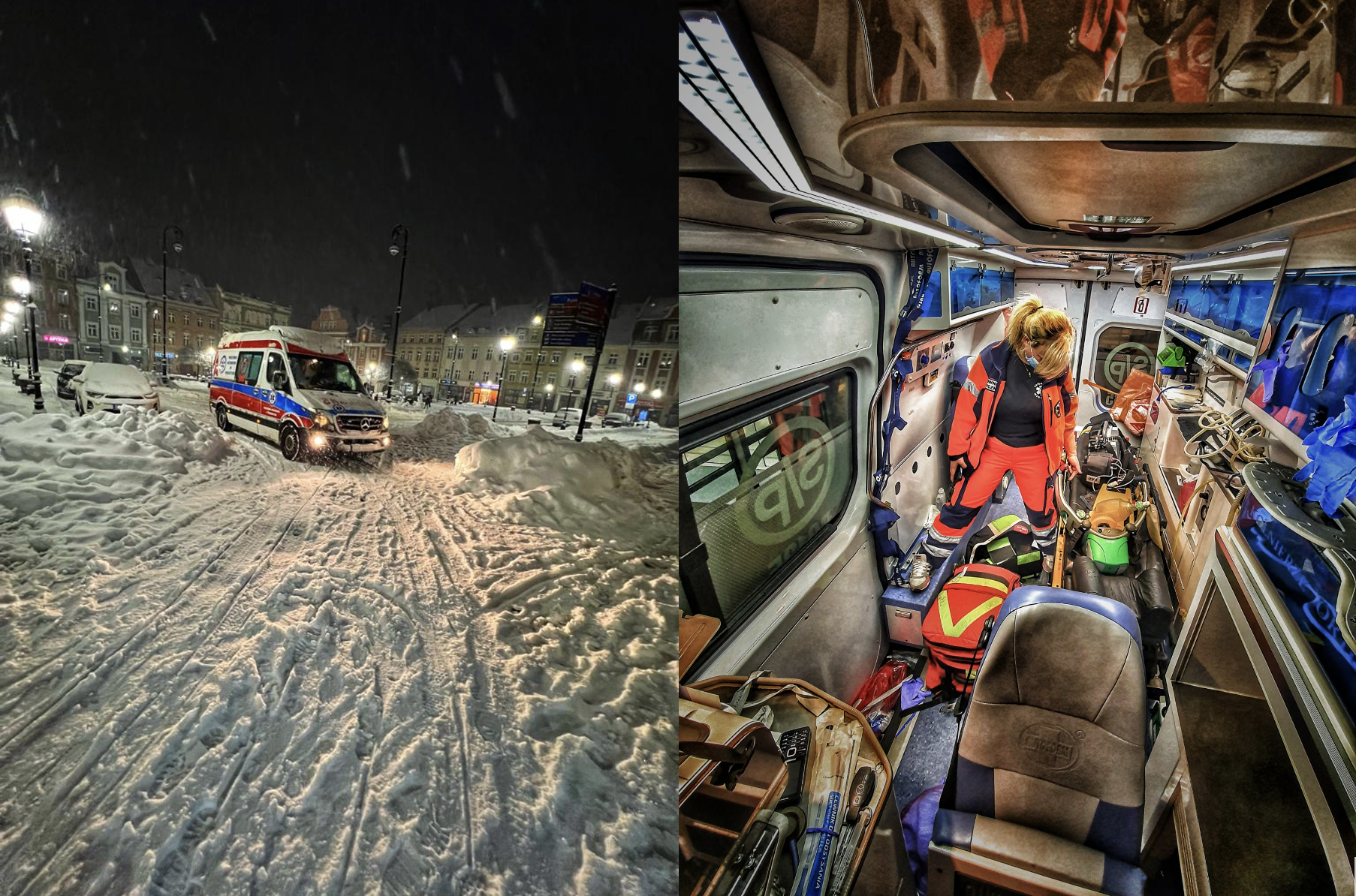
Bekerja sama dengan layanan ambulans pada tahun 2017 adalah langkah pertama menuju peningkatan kualitas seluruh rantai kelangsungan hidup pasien, ujar Dr Marciniak.“Mereka mengatakan bahwa rantai hanya sekuat mata rantai terlemah, dan dalam contoh ini, ini adalah metafora yang sempurna.
“Hubungan awal dalam rantai ini adalah pasien dan layanan ambulans – sehingga kita tidak dapat mengabaikan pentingnya pelatihan bagi masyarakat tentang stroke. Dan tentu saja kita tidak dapat melupakan hubungan berikutnya – bekerja sama dengan ahli radiologi dan meningkatkan kualitas perawatan di bangsal stroke. Setiap orang dalam komunitas orang-orang yang terlibat dalam perawatan stroke sudah terbiasa dengan slogan, ‘waktu adalah otak’. Menurut kami, lebih akurat untuk mengatakan bahwa ‘tim adalah otak’.”
Kerja tim seperti ini hanya bisa terjadi jika ada niat baik, kata Mateusz. “Pengembangan bersama protokol stroke yang tepat tidak dapat terjadi tanpa niat baik kedua belah pihak. Saya sangat senang bahwa bersama-sama dengan departemen neurologi di Wałbrzych, kita dapat menjadi bagian dari mesin hebat yang tujuannya adalah prosedur, diagnostik, dan pengobatan yang lebih cepat dan lebih cepat, serta meminimalkan defisit pada pasien stroke.”

